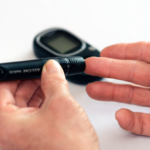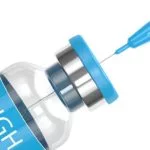THCA, or Tetrahydro Cannabinolic acid, is a Delta 9 molecule that, despite its newer application, is starting to show medicinal promise. You have probably heard of THC. However, THCA has quite distinct qualities. Delta 9 is an excellent option that you can get.

THCA is a non-psychoactive cannabinoid present in raw and live Delta 9, unlike THC. THCA progressively transforms to THC when the plant dries up. The process of decarboxylation, which is a fancy phrase for what occurs when you smoke or vape marijuana, speeds up this conversion.
Tinctures are one of the earliest ways in medicine for concentrating plant components. They have been used to extract the advantages of a broad range of plants in the past, including Delta 9.
The Folk Method of immersing plant material in grain alcohol is how tinctures traditionally originate. Manufacturers create D9 Tinctures with stable THC concentration for precise dosage by combining organic cane alcohol with CO2 Delta 9 extract.
“Tincture” refers to a product type and an extraction method that uses alcohol as a solvent. While the word sometimes denotes Delta 9-infused oils, the proper name for one of these is “infusion.”
Delta 9 Tincture Administration Methods
Tinctures are helpful for various purposes. They may not only be a valuable addition to a broad range of foods and drinks, but you can use them in many methods.
Because the sublingual artery quickly absorbs the Tincture, sublingual administration is the recommended form of administration.
Because active substances reach the circulation via the mouth lining, sublingual applications escape first-pass metabolism in the stomach or liver (Cannabinoids and pharmaceuticals) can be lost or degraded when being metabolized in the gut or liver, resulting in a smaller dose than expected.)
Sublingual administration allows for a 15-30 minute onset time, with peak effects around 90 minutes, which might be beneficial for dealing with severe breakthrough pain.
Ingestion. Alternatively, tinctures may be ideal as an edible: when THC is ingested or mixed into food, it transforms into the more potent form 11-hydroxy-THC, which takes two hours longer to kick in and has more significant, sedative effects than sublingual administration. Topical. Alcohol-based tinctures are best used topically for conditions that benefit from a drying, astringent impact, such as acne, skin irritation, or injuries deep under the skin’s surface.
Tinctures may also be beneficial topically (as a cream), although this is a more common application for WPCO and infused Delta 9 oils. Apply to mucous membranes and wounds alone.
Delta 9 Tinctures’ Advantages
Drop-by-Drop Dosing is a method of administering medication. Tinctures enable you to titrate exactly the proper dosage by allowing you to dispense only a single drop or two. They are more challenging to titrate because you cannot distribute concentrates, flowers, and baked foods drop-by-drop.
Even the smallest dosage is adequate. Tinctures are a fantastic method of figuring out your minimal effective dosage (MED) or how much Delta 9 you need to manage your illness. Learning your MED may help you save money, reduce your Delta 9 tolerance, pick products with the proper strength, and provide more effective therapy.
Patients should start with 2.5-5mg of THC and gradually increase the amount until they achieve their MED, waiting at least 60 minutes between doses. Keep in mind that taking numerous dosages during the day might have a cumulative effect, making the experience more intense.
A sublingual application of Delta 9 is undetectable. Cannabinoids are absorbed directly into the circulation via the sublingual artery when tinctures are placed immediately beneath the tongue and held for 15 seconds. To determine the potency of the alcohol, we suggest testing one drop of the Delta 9 tincture under your tongue first.
Repeated usage of alcohol kept under the tongue may cause discomfort; you can dilute the product with a bit of water to make them palatable for people who do not enjoy the taste or feel of alcohol. This administration technique is better for individuals who want to ingest Delta 9 discreetly without the stench caused by smoking or vaping.
Low-calorie. Unlike many Delta 9 foods, tinctures are low in calories, making them a good option if you are trying to lose weight. The regular D9 Tincture created with 140 proof alcohol has roughly seven calories per milliliter, but most baked pastries include 100 and 200 calories.
These products provide you with flexibility and long shelf life. Keep your tinctures well closed to avoid evaporation and mix thoroughly before using since separation may develop over time. You can store these products in a cold, dark area for years and use them in various meals such as juices, smoothies, soups, sauces, and more.
You can get products delivered to your house. You will not even need to step out of your home. This option is a perfect opportunity to test mixtures, whether you are searching for a discreet, efficient dosage Delta 9 or a simple way to figure out your minimum effective dose.
What are the impacts and advantages of THCA?
Although there is not enough study on THCA to say what it can cure or how effective it is, preliminary investigations and anecdotal data indicate that THCA will play a key role in Delta 9 therapy as the business grows. The following are some of the potential advantages that studies have begun to reveal.
- Anti-inflammatory qualities for arthritis and lupus therapy.
- Treatment of neurodegenerative disorders using neuroprotective characteristics.
- Antiemetic characteristics for nausea and appetite loss therapy.
- Studies on prostate cancer have shown anti-proliferative effects.
- Insomnia, muscular spasms, and discomfort are other prospective pharmacological pathways backed by patient accounts. Unfortunately, additional research is needed to verify all of the advantages mentioned above before entirely comprehending the impact of THCA on the future of cannabinoid-based treatments.
- THCA oil does not cause euphoria.
- Despite being a THC subset, THCA does not get you high or impair your judgment.
The explanation for this has much to do with the shape of THCA. It is a lot bigger molecule than THC, and it does not attach to either the CB1 or CB2 receptors correctly. Therefore it does not get you high.
Conclusion
It is easy to see why users think this is a good idea. If you want to get high while still absorbing THCA, you have to smoke THC-rich Delta 9 flower and then a few drops of quality THCA oil. Even if you smoked a THCA-rich Delta 9 flower, most of it would decarboxylate into THC upon contact with heat.
Like with anything, it is crucial to use these products in moderation. Please consult a doctor before using these products if you take any medications. These products can drastically improve your quality of life.
You might like: Delta-8 THC Different Than Regular Weed?
Join 25,000+ smart readers—don’t miss out!








